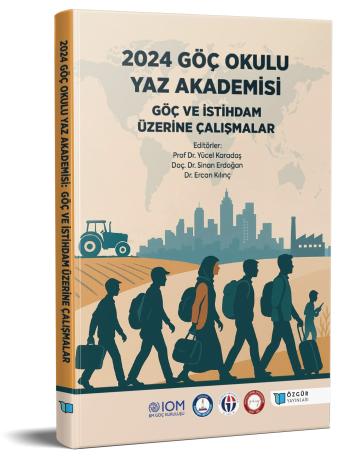
Evolving Roles and Regulations: The Role of International NGOs in Türkiye’s Response to the Syrian Crisis
Şu kitabın bölümü:
Karadaş,
Y.
&
Erdoğan,
S.
&
Kılınç,
E.
(eds.)
2025.
2024 Göç Okulu Yaz Akademisi Göç ve İstihdam Üzerine Çalışmalar.
Özet
Dating back to 2011, the Syrian civil war caused one of the greatest crises in modern history, with over 3 million Syrians seeking refuge in Türkiye. Through an open-door policy, Türkiye guided the crisis with emergency relief response, which later resulted in more emerging needs; structured, long-term integration strategies. International non-governmental organizations (INGOs) were one of the main actors who took their roles during this shift. With their increasing involvement, particularly in education, healthcare, and employment, Türkiye took this as an opportunity. Intensification of the crisis introduced the society in Türkiye new legal and administrative frameworks to regulate INGO operations. Türkiye paved a way for INGOs to formalize their participation through 2013 Law on Foreigners and International Protection and the Temporary Protection Law. Through these actions, partnerships with government institutions like the Directorate General of Migration Management (DGMM), now the Presidency of Migration Management (PMM) were initiated. Followed by these steps, the 2015 Regional Refugee and Resilience Plan (3RP) and the 2016 EU-Türkiye Deal significantly expanded INGO engagement. These initiatives created a new phase for the humanitarian efforts in Turkiye, merging it with development goals together with the public institutions, emphasizing resilience and integration. Being emergency actors, INGOs found themselves as key partners in Türkiye’s refugee response. Considering regulatory barriers and political sensitivities, INGOs have still created an atmosphere where their vital role in managing both short-term humanitarian needs and long-term integration efforts solidified their place in Türkiye’s migration governance framework.

